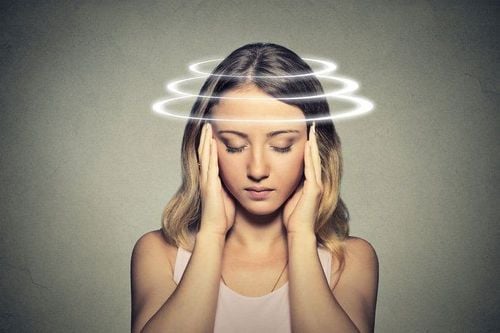This is an automatically translated article.
Anyone who suffers from migraines has wondered about migraine prevention. According to neurologists and headache experts, although there is no cure for migraines, there are effective ways to prevent migraines. And the simplest treatment is to change the individual's lifestyle accordingly.
1. Review your own diet
You can prevent migraines by avoiding certain foods. Although there is not much evidence to support the hypothesis that certain foods can trigger pain, one of the ways to prevent migraines is to be careful when eating
However, even if you If you have a reaction to certain foods, it can be difficult to figure out what your specific trigger is. For one thing, a migraine attack can come hours after you've finished eating - and it's hard to be sure that other factors, such as stress or a change in weather, aren't triggering the headache?
There is some research showing that the ketogenic diet (focusing on high-fat/low-carb foods) can prevent migraines. According to a study of 96 people, those who followed the keto diet had fewer migraines. In addition, another diet that has been shown to have a positive effect on migraine prevention, is that eating more omega-3 foods and less omega-6 can reduce inflammation in the body.
2. Try eating more often
It's all about blood sugar and how often you tolerate food. Long periods of time between meals, or skipping meals, can trigger migraine attacks or make headaches worse due to low blood sugar. Indeed, the risk of developing a headache tends to increase with the interval between meals, so migraine patients should make time for occasional minor headaches. As such, eating regular meals every day can help make migraines less likely.
The remaining issue is what to eat and when to eat. Patients are often advised to eat something high in protein within 30 to 60 minutes of waking up. Throughout the day, eat healthy, nutritious meals with plenty of fruits, vegetables, and protein. Try to eat something with protein every 3-4 hours. This is because protein helps stabilize blood sugar, and sudden changes in these levels can trigger a migraine.
3. Consider a magnesium supplement
According to the American Headache Society and the American Academy of Neurology, magnesium is considered one of a number of complementary medicines used to prevent migraines. The mechanism is that magnesium can block brain signals that cause the visual and sensory changes associated with aura. Furthermore, this ingredient can also reduce or block pain-transmitting chemicals in the brain and may be helpful for brain blood vessels.
4. Keep yourself hydrated
You should also pay attention to what you are drinking and how much you drink. Because dehydration is also a known cause of migraines.
When the body is dehydrated, it affects the cells and can lead to less blood and oxygen being delivered to the brain. As a result, the pain fibers that surround the brain can become activated, leading to a migraine attack.
5. Actively reduce stress
It's not always the easiest thing to do to relieve stress in your mind, but it makes sense if you find a way to stay calm throughout the day.
Stress is one of the most reported migraine triggers. This is because psychological stimuli cause changes in chemicals and hormones in the body. What's more, stress can trigger migraines, and migraines can cause more stress, leading to an almost endless cycle.
So actively reduce stress and find your own path to peace, be it by meditating, learning yoga, taking a hot bath or spending some quiet time reading - and do these things often often.
6. Consider Botox
Over 10 years ago, the FDA approved the use of Botox as a treatment and prevention for chronic migraine. Specifically, the botox treatment is very quick and consists of 31 small injections at locations on the forehead, temples, back of the head, neck and shoulders, providing significant pain relief. Botox injections are done every 12 weeks and it can take 2-3 treatments to see an improvement.
Botox's mechanism of action is that injected around the pain fibers associated with migraines, it diffuses down the pain receptors and blocks the release of the chemicals involved in migraines. transmit pain. At this point, blocking the chemical will prevent the activation of pain centers in the brain.
7. Make time for sleep
Studies have shown an undeniable link between migraines and sleep. When a person's sleep schedule becomes irregular, migraine attacks are easier to trigger. Therefore, it is imperative that migraine sufferers develop a good sleep routine, as sleep is essential for brain health and pain prevention.
Accordingly, the patient should try to go to bed at the same time every night and wake up at the same time every morning, within an hour period. Aim to get at least 7-8 hours of sleep each night. If you can't do that, you shouldn't try to compensate with naps either, as this can disrupt the sleep cycle and lead to more migraines.
8. Consider taking a vitamin B supplement
Several studies have shown that regularly taking vitamin B2 supplements can help prevent migraines. This effect is due to the role of B vitamins in energy production in the body.
Migraine patients often observe a lack of vitamin B2 - also known as riboflavin - and an inefficient use of energy cells in the brain. This can contribute to headaches. Therefore, vitamin B2 is a recommended supplement for migraine at a dosage of 400mg per day.
In summary, active lifestyle changes, from lifestyle habits to diet, can be effective ways to prevent migraines. However, if you have tried these to no avail, a visit with a neurologist or headache specialist will be necessary. At this time, the patient will be prescribed appropriate migraine prevention drugs, helping to safely control the frequency and intensity of attacks, and limit potential side effects.
Please dial HOTLINE for more information or register for an appointment HERE. Download MyVinmec app to make appointments faster and to manage your bookings easily.
Reference sources: goodhousekeeping.com, healthline.com












